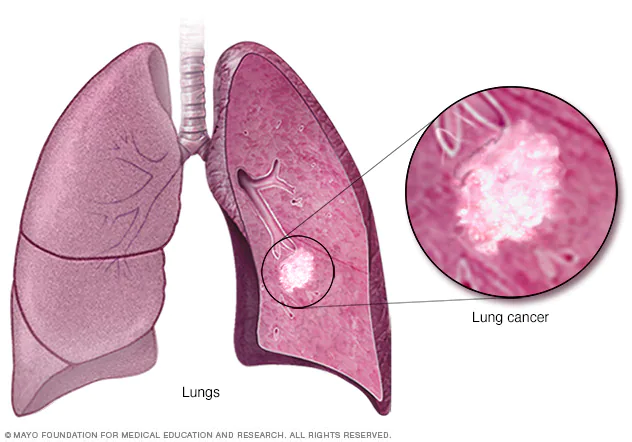A computer programme has been developed that can help identify people at risk of developing lung cancer in the next 10 years.
Called CanPredict, it is hoped to be in public use in the near future and would mean patients at high risk could be sent for earlier screening, potentially saving lives.
Developed by researchers at the University of Oxford and the University of Nottingham, it uses a wide range of measurements – from smoking status and age, to BMI and socioeconomic status – to calculate the risk of disease.
“We need a way to target those at the greatest risk,” said Fergus Gleeson, professor of radiology at the University of Oxford who worked on the new tool.
New computer programme can ‘predict’ who will develop lung cancer 10 years ahead
Buhari, Tinubu condole Yusuf Ali over mother’s death
Lung cancer is the second most common cancer and the leading cause of cancer deaths worldwide. In its early stages, there are usually no obvious signs or symptoms and it can go undetected for some time.
Roughly half of the sufferers are diagnosed at a late stage, when the disease has spread and is harder to treat. Screening, which aims to catch the disease early, has been shown to improve survival rates.
Screening is carried out using computerised tomography (CT) scans, but these are expensive and take up staff resources and time, meaning the number of people who can be screened is limited.
Doctors currently select people for screening by using a survey that questions patients of a certain age on their smoking status and family history of the disease. It is hoped that CanPredict could offer a far more accurate way to choose those put forward for screening.
Researchers used data from 2.54 million anonymised health records to see which people it predicted were at the greatest risk of developing lung cancer. They then looked at which of the patients did go on to develop the disease. CanPredict correctly identified more people who went on to get lung cancer than the current methods.
Dr Weiqi Liao, lead author of the University of Oxford study, said: “It works by examining existing patient health records so it could be run by GPs automatically.”
Julia Hippisley-Cox, professor of clinical epidemiology and general practice at the University of Oxford, said: “We hope this tool will help better identify patients for screening and spot lung cancer earlier, when treatments are more likely to help.”
– Mail Online

 Join Daily Trust WhatsApp Community For Quick Access To News and Happenings Around You.
Join Daily Trust WhatsApp Community For Quick Access To News and Happenings Around You.